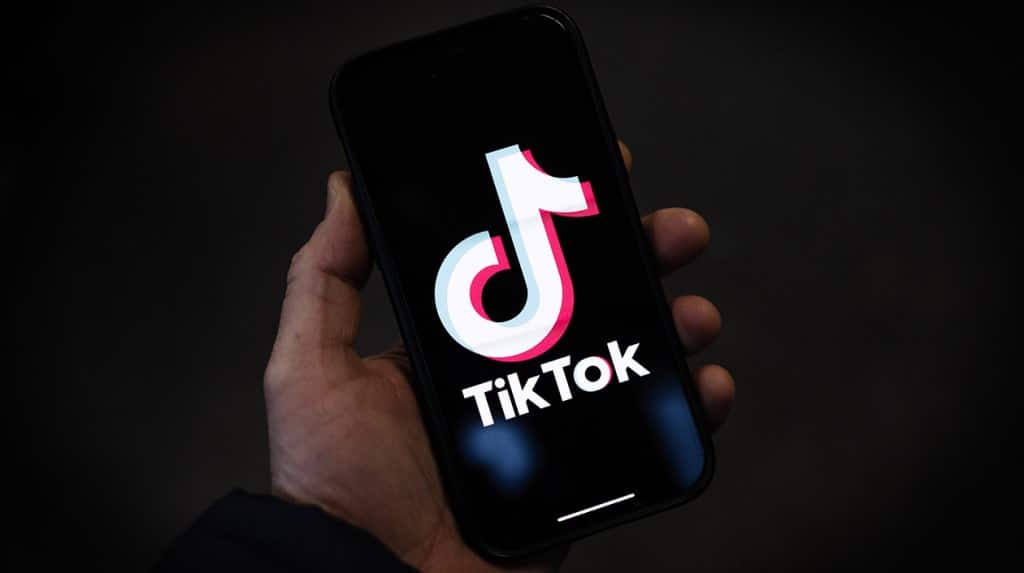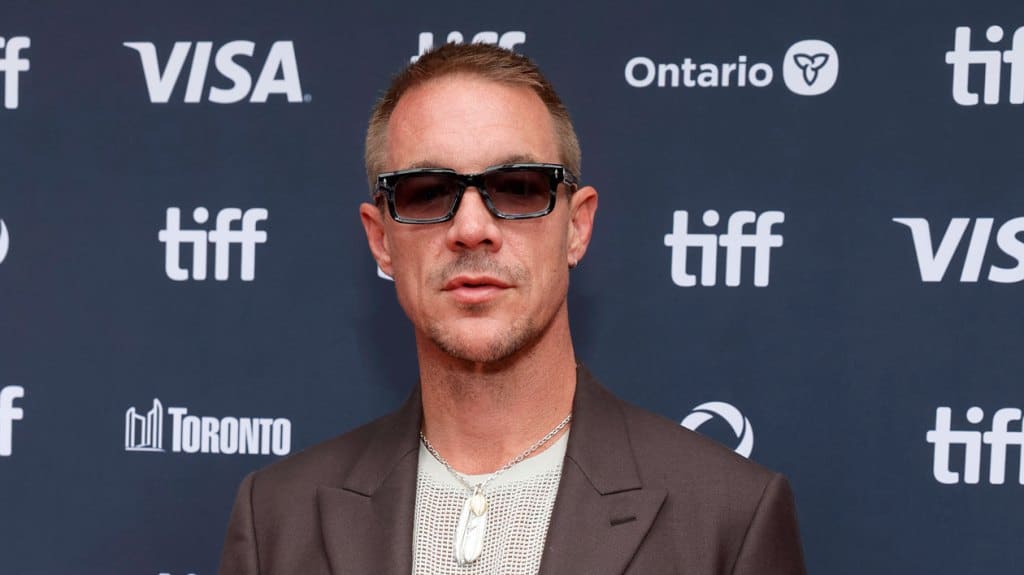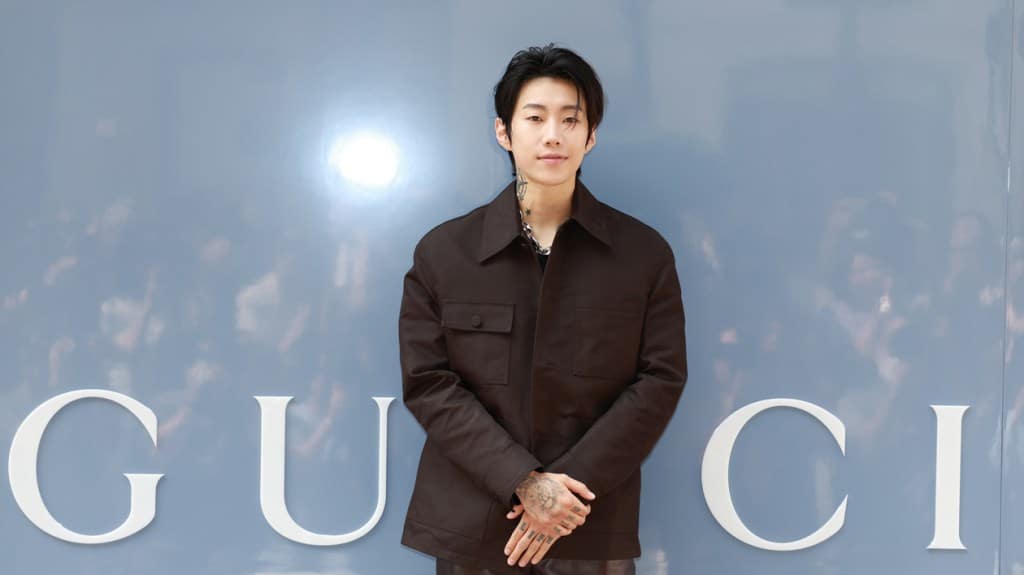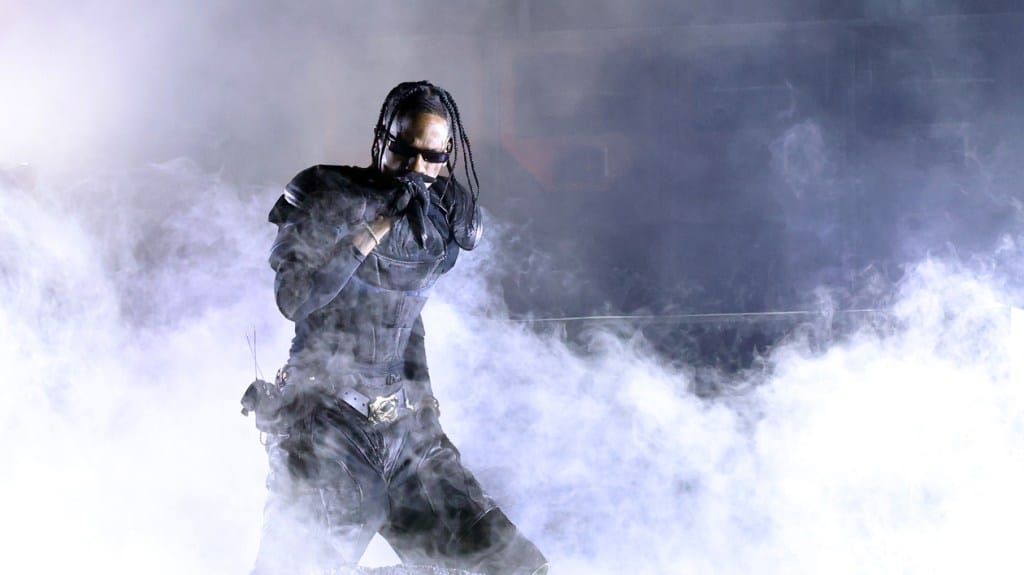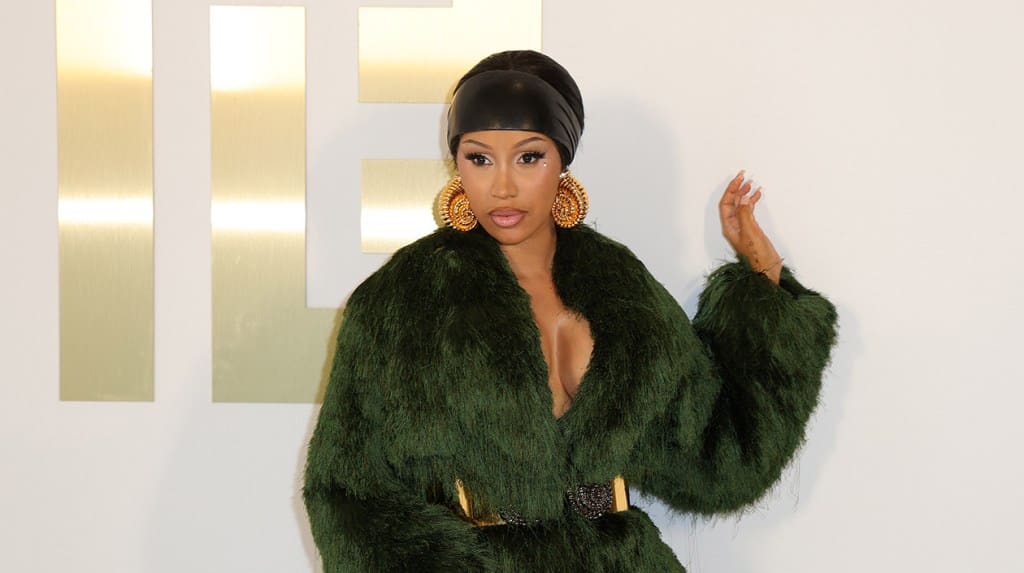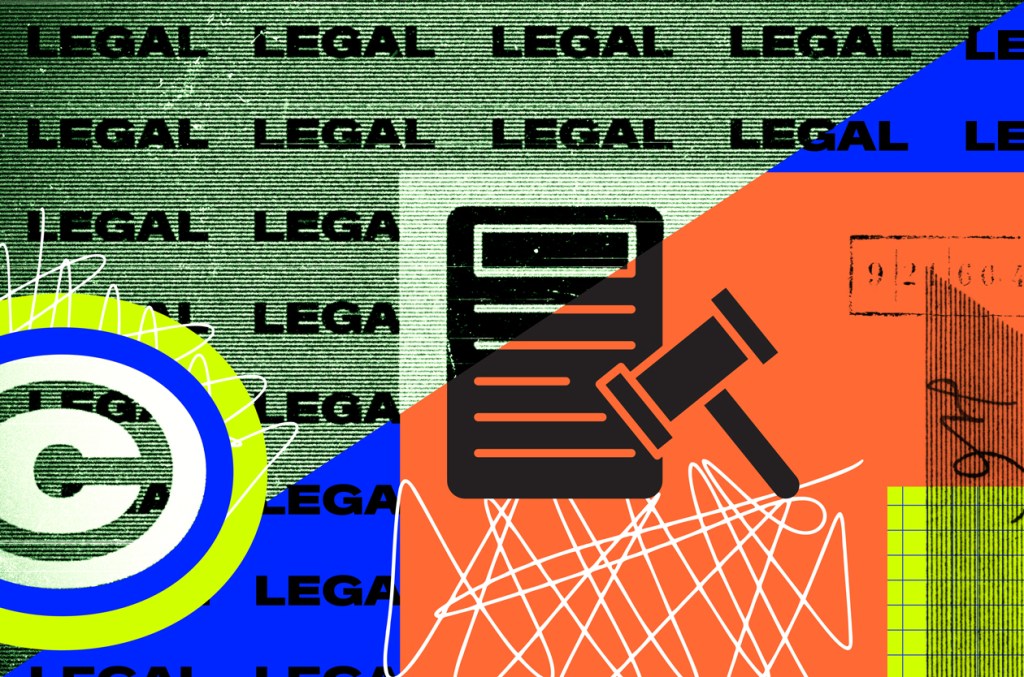Legal News
Page: 35
This is The Legal Beat, a weekly newsletter about music law from Billboard Pro, offering you a one-stop cheat sheet of big new cases, important rulings and all the fun stuff in between.
This week: TikTok – and the music industry – wait for a Supreme Court ruling on the app’s fate; Megan Thee Stallion wins a new civil restraining order against Tory Lanez; Travis Scott and SZA face a copyright lawsuit over their collab hit; and much more.
THE BIG STORY: TikTok’s Future Hangs In The Balance
The U.S. Supreme Court could rule at any moment on the future of TikTok – a key cog in the modern music industry. And it doesn’t look good for TikTok.
Trending on Billboard
At arguments on Thursday, justices on both sides of the high court’s ideological divide seemed to signal that they plan uphold a law requiring the app’s Chinese-owned parent ByteDance to either sell TikTok to a U.S. company or face a total ban on January 19. TikTok and groups of users argued that the law violates the First Amendment’s protections for free speech, but the justices appeared more concerned about national security concerns cited by the government.
Justice Brett Kavanaugh said China could use internal TikTok data to “develop spies, to turn people, to blackmail people.” Justice Elena Kagan noted that the First Amendment doesn’t even apply to a foreign firm like ByteDance. Chief Justice John Roberts pointedly asked TikTok’s lawyer if the court was “supposed to ignore the fact that the ultimate parent is, in fact, subject to doing intelligence work for the Chinese government?”
Following the hearing, courtwatchers weren’t optimistic about TikTok’s chances: “I think it’s more likely than not that TikTok & TikTok users lose this case 9-0,” wrote Leah Litman, a constitutional law professor at the University of Michigan Law School, in a post on Bluesky.
Many legal battles have big stakes for the industry, but few are on the scale of the TikTok case. With more 170 million American users, the app has become a key part of the modern music ecosystem – a core promotional tool for labels and a jumping off point for many new artists, albeit one that has occasionally butted heads with rights owners and can sometimes prove difficult to harness into lasting success.
As Billboard‘s Elias Leight writes, record labels are already gearing up for the potential of life without TikTok — an outcome that executives tell him is hard to even imagine: “Where is new artist discovery happening in 2025 if this app completely disappears?” The live music business is also preparing to lose the platform, Billboard’s Dave Brooks writes, since festivals and other promoters have increasingly relied upon TikTok in recent years to reach ticket buyers.
The wild card in all of this, of course, is President-elect Donald Trump – who was very famously For It Before He Was Against It when it comes to the TikTok ban but has now said he wants to “negotiate a resolution” to save the platform.
Trump is set to take office on Jan 20, just hours after the ban is scheduled to go into effect. Stay tuned.
Other top stories this week…
“WON’T LET ME FORGET IT” – Megan Thee Stallion won a civil restraining order against Tory Lanez after tearfully testifying before a Los Angeles judge that she was scared he’ll “shoot me again” when released from prison and “maybe this time I won’t make it.” The order came more than two years after Lanez was convicted of shooting the superstar rapper in the foot during a drunken incident in the Hollywood Hills. Lanez is currently serving a 10-year prison sentence, but Megan warned the judge that he has continued to harass her from behind bars: “It just seems like I have to relive it every day. The person who shot me won’t let me forget it.”
COPYRIGHT CLASH – Travis Scott, SZA and Future were hit with a copyright lawsuit by Victory Boyd (a singer signed to Jay-Z‘s Roc Nation record label) over allegations that they stole key elements of their 2023 hit “Telekinesis” from her 2019 song “Like The Way It Sounds.” Boyd says she initially shared her song with none other than Kanye West, who then allegedly shared it with Scott.
UNMASKING ORDER – K-hip-hop star Jay Park asked a U.S. court to force Google to identify an anonymous YouTube user so he could sue the person in Korean court, citing allegedly defamatory internet videos linking him to drug traffickers and disparaging Korean-Americans. The case isn’t entirelys surprising: As K-pop has exploded in global popularity — and with it an intense online fan culture — superstar acts like BTS and BLACKPINK have repeatedly turned to Korea’s strict libel laws to target statements made on the internet. Last year, NewJeans filed a similar U.S. case seeking to reveal a YouTuber’s identity.
RELEASE DATE – YoungBoy Never Broke Again (a.k.a. NBA YoungBoy) will be released from prison in July, according to federal inmate records — far sooner than indicated by his formal two-year sentence handed down last month. The rapper (real name Kentrell Gaulden) received the sentence after taking a plea deal last year to resolve federal gun possession charges in Louisiana and Utah. The likely explanation: YoungBoy is being credited with time-served for jail stints while he awaited trial.
CASE CLOSED (FOR NOW) – An anonymous Jane Doe accusing Diplo of sharing “revenge porn” dropped her lawsuit against the DJ, just weeks after a federal judge ruled she would need to reveal her identity if she wanted to proceed with the case. The move to end the suit was filed “without prejudice,” meaning she could still refile her lawsuit at some point in the future.
CARDI v. TASHA CONTINUES – Years after Cardi B won a multi-million dollar defamation verdict against gossip blogger Tasha K, the superstar is still battling to get that money. In a court filing last month, Cardi accused Tasha of using bankruptcy as part of a “fraudulent scheme to shield debtor’s assets and income from creditors.” Tasha then fired back last week, arguing that the rapper is trying to “sabotage” her career and “silence” her.
A woman accusing Diplo of sharing “revenge porn” has dropped her lawsuit against the DJ, just weeks after a federal judge ruled she would need to reveal her identity if she wanted to proceed with the case.
In a court filing on Monday (Jan. 13), attorneys for the unnamed “Jane Doe” asked the judge to dismiss the lawsuit — a case that claims the DJ (Thomas Wesley Pentz) filmed sexual encounters without the woman’s knowledge and shared them on Snapchat.
The motion asked the judge to dismiss the case “without prejudice” — meaning the woman could still refile it at some point in the future. Her attorneys did not immediately return a request for comment on the decision to drop their case or whether they plan to refile it.
The move came two weeks after Judge Mónica Ramírez Almadani ruled that the Doe must use her real name to keep pursuing her accusations against Diplo. The judge acknowleged that the allegations were “sensitive and of a highly personal nature,” but said the accuser had failed to legally show that she needs to remain anonymous.
“Those using the courts must be prepared to accept the public scrutiny that is an inherent part of public trials,” the judge wrote, quoting from another old ruling. “Plaintiff has not sufficiently demonstrated that this case warrants an exception.”
At the time, Doe’s attorneys vowed to appeal that ruling, saying revealing her name “risks permanently linking a survivor to their trauma.” The status of any such appellate effort is unclear after Monday’s voluntary dismissal.
Diplo’s attorneys did not immediately respond to a request for comment on the voluntary dismissal of the case against their client. In previous statements, they have strongly denied the lawsuit’s allegations, calling it an “obvious shakedown attempt.”
In a complaint filed in June, Diplo’s accuser alleged she’d had a consensual sexual relationship with the DJ from 2016 to 2023, and that she occasionally “gave defendant Diplo permission to record them having sex.” But she said she later learned that he had sometimes secretly recorded them and then shared footage on the internet “without plaintiff’s knowledge or consent.”
“Plaintiff brings this action to recover for the emotional and physical injuries she endured because of Diplo’s actions and to make sure no one else is forced to suffer the privacy invasions and physical and mental trauma she felt and continues to feel to this day,” Doe’s attorneys wrote.
The lawsuit accused Diplo of violating the federal Violence Against Women Act, which was amended in 2022 to ban the sharing of “intimate” images without the consent of those depicted in them. The case also cited an earlier revenge porn law enacted by the state of California.
The abrupt dismissal of the Jane Doe case came a week after lawyers for Diplo announced a deal to resolve a messy legal dispute with Shelly Auguste, another former romantic partner of the DJ/producer, as reported by Rolling Stone.
In that case, which had been set to go to trial this month, Diplo accused the woman of stalking, trespassing and releasing revenge porn of him. She had also leveled her own set of legal claims against him, including sexual battery and assault.
YoungBoy Never Broke Again (a.k.a. NBA YoungBoy) will be released from prison this summer, according to federal inmate records — far sooner than indicated by his formal two-year sentence handed down last month.
The rapper (Kentrell Gaulden) pleaded guilty last year to a pair of federal gun charges — one over possession of firearms in Louisiana, and another over a gun found when he was arrested in Utah. In December, he was sentenced to 23 months in prison and five years probation on those convictions.
But federal innmate records now indicate that YoungBoy is scheduled for release on July 27. It’s unclear when that release date was posted, or whether it could later be changed.
Trending on Billboard
The reason for the early release is likely time-served — credit for time YoungBoy already spent in jail awaiting trial. The rapper was previously in custody for several months on the Louisiana gun charge and spent several more months in a Utah county jail last year after he was arrested in that state.
Neither the rapper’s attorney nor federal prosecutors immediately returned requests for comment on Monday (Jan. 13)
YoungBoy, a prolific rapper who has had four albums reach the top of the Billboard 200, was indicted by federal prosecutors in March 2021 after he was allegedly found with two guns during a music video shoot in September 2020 in Baton Rouge, La. Because of an earlier felony conviction from 2017, the rapper was charged with violating a federal law that bans felons from possessing guns.
While awaiting trial on those charges under house arrest in Utah, YoungBoy was arrested again in April over accusations that he participated in a “large scale prescription fraud ring.” One of those added charges was another count of illegal gun possession over a semi-automatic pistol found in his Utah bedroom.
In December, the star’s legal team finalized a complex “global” settlement to resolve all his various cases. Under that deal, he admitted to federal charges of owning the illegal guns in both Lousiana and Utah and also pleaded no contest to several state charges in Utah.
Though he had been facing decades in prison over the various charges, the deal saw YoungBoy sentenced to 23 months in prison for the Louisiana charge and sentenced to five years of probation and fined $200,000 for a gun charge in a separate Utah case. At the time, his attorneys said in a statement: “This has been a long road that involved extensive litigation and ultimately extensive negotiation. Kentrell’s defense team is very happy for Kentrell and we look forward to his many future successes.”
While the July release date is now scheduled, it’s unclear if it means that YoungBoy will be released directly onto probation or into some kind of transitional facility, often known as a halfway house.
K-hip-hop star Jay Park is asking a U.S. court to force Google to unmask an anonymous YouTube user so he can sue in Korean court, citing allegedly defamatory internet videos linking him to drug traffickers and disparaging Korean-Americans.
Attorneys for the American-born Park say a YouTube account transliterated as Bburingsamuso has subjected the artist to a “malicious” campaign of videos, including one claiming he works with Chinese mobsters to import drugs and another suggesting Korean-Americans like Park “exploit” the country with illegal activities.
Park’s lawyers have already filed a defamation lawsuit in Korea, but in a petition filed Thursday (Jan. 9) in California federal court, they say that the foreign lawsuit “cannot proceed” without a U.S. subpoena forcing Google to hand over the user’s identity.
Trending on Billboard
“The defamatory statements falsely accuse Jay Park of being involved with organized crime, drug trafficking, and unethical conduct, all of which have caused significant harm to his reputation and professional endeavors,” the singer’s attorneys write. “Despite extensive efforts to identify the anonymous YouTuber through publicly available information, Jay Park has been unsuccessful to date. Consequently, Jay Park now seeks the assistance of this court.”
Google could legally object to such a request, including by potentially arguing that the subpoena would violate the First Amendment and its protections for anonymous speech. But Park’s attorneys say the U.S. Constitution simply doesn’t apply since they “strongly” believe the poster lives in Korea.
“Jay Park is not attempting to infringe on the anonymous YouTuber’s First Amendment rights because the anonymous YouTuber appears to be a citizen of Southern Korea,” the filing says. Park’s lawyers cite an earlier precedent that says U.S. legal protection for free speech “doesn’t reflect a U.S. policy of protecting free speech around the world.”
As K-pop and other Korean music have exploded in global popularity over the past decade — and with it an intensely enthusiastic online fan culture — numerous stars have turned to Korea’s strict defamation laws to fight back against what they say are false statements about them on the internet.
In 2019, HYBE (then Big Hit Entertainment) filed criminal cases alleging “personal attacks” on the superstar band BTS. In 2022, Big Hit did so again over “malicious postings” about BTS, even asking the group’s famous fan “army” to help gather evidence. YG Entertainment, the label behind BLACKPINK, has also filed its own complaint against “internet trolls,” accusing them of “spreading groundless rumours about our singers.”
It’s also not the first time such litigants have turned to the U.S. courts to help. In March, the K-pop group NewJeans filed a similar petition in California federal court, seeking to unmask a YouTube user so that the band could press for criminal charges in Korea over “derogatory” videos.
In that case — filed by the same lawyer who represents Park in his case filed this week — a judge eventually granted the subpoena. But it’s unclear from court records the extent to which Google has complied with it.
A Google spokesman did not respond to a request for comment on Park’s petition. But in a policy statement regarding government requests for personal information, the company says: “Google carefully reviews each request to make sure it satisfies applicable laws. If a request asks for too much information, we try to narrow it, and in some cases we object to producing any information at all.”
In one of the most important cases of the social media age, free speech and national security collide at the Supreme Court on Friday in arguments over the fate of TikTok, a wildly popular digital platform that roughly half the people in the United States use for entertainment and information.
TikTok says it plans to shut down the social media site in the U.S. by Jan. 19 unless the Supreme Court strikes down or otherwise delays the effective date of a law aimed at forcing TikTok’s sale by its Chinese parent company.
Working on a tight deadline, the justices also have before them a plea from President-elect Donald Trump, who has dropped his earlier support for a ban, to give him and his new administration time to reach a “political resolution” and avoid deciding the case. It’s unclear if the court will take the Republican president-elect’s views — a highly unusual attempt to influence a case — into account.
Trending on Billboard
TikTok and China-based ByteDance, as well as content creators and users, argue the law is a dramatic violation of the Constitution’s free speech guarantee.
“Rarely if ever has the court confronted a free-speech case that matters to so many people,” lawyers for the users and content creators wrote. Content creators are anxiously awaiting a decision that could upend their livelihoods and are eyeing other platforms.
The case represents another example of the court being asked to rule about a medium with which the justices have acknowledged they have little familiarity or expertise, though they often weigh in on meaty issues involving restrictions on speech.
The Biden administration, defending the law that President Joe Biden signed in April after it was approved by wide bipartisan majorities in Congress, contends that “no one can seriously dispute that (China’s) control of TikTok through ByteDance represents a grave threat to national security.”
Officials say Chinese authorities can compel ByteDance to hand over information on TikTok’s U.S. patrons or use the platform to spread or suppress information.
But the government “concedes that it has no evidence China has ever attempted to do so,” TikTok told the justices, adding that limits on speech should not be sustained when they stem from fears that are predicated on future risks.
In December, a panel of three appellate judges, two appointed by Republicans and one by a Democrat, unanimously upheld the law and rejected the First Amendment speech claims.
Adding to the tension, the court is hearing arguments just nine days before the law is supposed to take effect and 10 days before a new administration takes office.
In language typically seen in a campaign ad rather than a legal brief, lawyers for Trump have called on the court to temporarily prevent the TikTok ban from going into effect but refrain from a definitive resolution.
“President Trump alone possesses the consummate dealmaking expertise, the electoral mandate, and the political will to negotiate a resolution to save the platform while addressing the national security concerns expressed by the Government — concerns which President Trump himself has acknowledged,” D. John Sauer, Trump’s choice to be his administration’s top Supreme Court lawyer, wrote in a legal brief filed with the court.
Trump took no position on the underlying merits of the case, Sauer wrote. Trump’s campaign team used TikTok to connect with younger voters, especially male voters, and Trump met with TikTok CEO Shou Zi Chew at Trump’s Mar-a-Lago club in Palm Beach, Florida, in December. He has 14.7 million followers on TikTok.
The justices have set aside two hours for arguments, and the session likely will extend well beyond that. Three highly experienced Supreme Court lawyers will be making arguments. Solicitor General Elizabeth Prelogar will present the Biden administration’s defense of the law, while Trump’s solicitor general in his first administration, Noel Francisco, will argue on behalf of TikTok and ByteDance. Stanford Law professor Jeffrey Fisher, representing content creators and users, will be making his 50th high court argument.
If the law takes effect, Trump’s Justice Department will be charged with enforcing it. Lawyers for TikTok and ByteDance have argued that the new administration could seek to mitigate the law’s most severe consequences.
But they also said that a shutdown of just a month would cause TikTok to lose about one-third of its daily users in the U.S. and significant advertising revenue.
As it weighs the case, the court will have to decide what level of review it applies to the law. Under the most searching review, strict scrutiny, laws almost always fail. But two judges on the appellate court that upheld the law said it would be the rare exception that could withstand strict scrutiny.
TikTok, the app’s users and many briefs supporting them urge the court to apply strict scrutiny to strike down the law.
But the Democratic administration and some of its supporters cite restrictions on foreign ownership of radio stations and other sectors of the economy to justify the effort to counter Chinese influence in the TikTok ban.
A decision could come within days.
This story was originally published by The Associated Press.

Megan Thee Stallion won a restraining order against Tory Lanez on Thursday (Jan. 9) after tearfully testifying before a Los Angeles judge that she’s scared he’ll “shoot me again” when released from prison and “maybe this time I won’t make it.”
A month after the star’s lawyers warned that Lanez has continued to “terrorize her” with a “campaign of harassment” even as he sits behind bars, Judge Richard Bloom granted her a civil restraining order that will bar Lanez from any harassing conduct for the next five years.
The ruling came after emotional testimony from Megan herself, who fought back tears as she told Bloom that she hasn’t “been at peace since I was shot” and is “just tired of being harassed.”
“It just seems like I have to relive it every day. The person who shot me won’t let me forget it,” Megan told the judge via livestream video conference. “I’m scared that when he gets out of jail he’s going to still be upset with me … I feel like maybe he’ll shoot me again and maybe this time I won’t make it.”
Judge Bloom issued the order from the bench, saying that Megan had shown a “credible threat of violence” and other potential wrongdoing that “seriously harasses the petitioner and serves no lawful purpose.” The order bars a wide range of conduct, including any contact or harassment through any means.
After Bloom issued the order, the star briefly unmuted her microphone: “Thank you, judge.”
Lanez was convicted in 2022 on three felony counts over the violent 2020 incident, in which a drunken argument in the Hollywood Hills escalated into a shooting. After Lanez allegedly yelled “Dance, bitch!,” he proceeded to shoot at Megan’s feet with a handgun, striking her multiple times. In 2023, he was sentenced to 10 years in prison; he has filed an appeal, which remains pending.
In recent months, Megan’s attorneys have fought what they call an unlawful campaign by Lanez to spread misinformation about the case on the internet — like a viral story that circulated on X in October falsely claiming an appeals court had declared him “innocent.”
In October, Megan’s lawyers filed a federal lawsuit against YouTuber and social media personality Milagro Gramz, who she claims has served as a “mouthpiece and puppet” for the convicted singer. In later filings, they alleged that discovery in the case had revealed prison phone calls in which Lanez coordinated payments to Gramz.
And last month, Megan’s attorneys demanded the civil harassment restraining order in Los Angeles court, arguing Lanez had conspired with people outside the prison to “harass, bully, and antagonize” her. They said they had only recently learned that the criminal restraining order from the shooting case was no longer in place and that it could not now be reimposed.
“Mr. Peterson’s attempts to retraumatize and revictimize Ms. Pete recognize no limits — indeed, they continue even while he is behind bars,” Megan’s lawyers wrote at the time. “While Mr. Peterson distorts and recklessly disregards the truth in his desperate attempt to appeal his conviction, his false assertions have reignited a slew of negative, harmful, and defamatory comments directed to Ms. Pete.”
Attorneys for Lanez responded late last month, calling the petition a “frivolous request” and accusing Megan of trying to “weaponize the justice system” because she “disagrees with free speech” and couldn’t handle criticism: “Rather than rebut the commentary or debate the issues … Plaintiff has succumbed to the current trend of using the legal system in an attempt to cancel those opinions she disagrees with.”
At Thursday’s hearing, Lanez’s attorney Michael Hayden reiterated those arguments, saying his client was “not threatening the petitioner in any way.” Instead, he argued that Megan was simply upset about criticism from internet bloggers with “their own independent minds” who Lanez cannot control — and he warned that such a restraining order would violate the First Amendment.
“This is about an attempt to chill free speech based on prior restraint,” the attorney told the judge.
At one point, Megan herself returned to the virtual witness stand to rebut that point, saying she was “not trying to take anyone’s free speech away” but rather to stop Lanez from continuing to drive harmful harassment from behind the scenes.
“I understand that being a public figure comes with hearing a lot of people from all over the world talk about you,” she told the judge. “The problem that I have is that the man that shot me is orchestrating other people and paying people … to put out lies and smear campaigns against me.”
In issuing his ruling, Judge Bloom seemed to avoid the issue of online smears and instead focus on the potential for violence, citing the 2020 shooting that lay at the heart of the case.
“We have a shooting that took place … and with a violent act like that there’s a ripple effect that continues on,” the judge said. “In some cases, it may be small ripples that go away with time, and in other cases, it could be ripples that grow with time. Ms. Pete’s testimony here seems to make clear that the ripple effect here has been significant.”
Travis Scott, SZA and Future are facing a copyright lawsuit over allegations that they stole key elements of their 2023 hit “Telekinesis” from an earlier track.
In a complaint filed Wednesday in Manhattan federal court, Victory Boyd (a singer signed to Jay-Z‘s Roc Nation record label) says the stars copied lyrics and other elements from her 2019 song “Like The Way It Sounds” and used them in “Telekinesis,” which spent 11 weeks on the Hot 100.
“Scott, Sza, Future and all defendants intentionally and willfully copied plaintiffs’ original work, specifically plaintiff’s lyrics, when they commercially released the infringing work,” write Boyd’s lawyers.
Trending on Billboard
Boyd claims that she initially shared “Like The Way” with Kanye West, who then recorded it as a track called “Ultrasounds.” West (who is not named in the lawsuit) then allegedly shared the song with Scott, who then shared it with SZA and Future.
“Scott gained access to the studio plaintiff left the original work in and began creating the infringing work,” Boyd’s lawyers write. “In May of 2023, Scott, SZA and Future agreed to create the infringing work by copying plaintiff’s original work.”
Notably, the lawsuit say the stars have essentially admitted to using her song. When “Telekinesis” was first uploaded to streaming platforms, Boyd’s lawyers say she was credited as a co-writer in the metadata. More recently, they say she’s been offered an 8 percent songwriting credit to resolve the dispute.
But Boyd appears focused on the fact that she “never granted permission” for her song to be used in the first place – saying the track had been taken without her “authorization, knowledge or consent.”
Also named as a defendant in the lawsuit is Audemars Piguet, a Swiss watchmaker that has partnered with Scott’s Cactus Jack brand for a collaborative line of watches. Boyd says the company used “Telekinesis” in advertising videos even after she and her publisher expressly refused their request for a license.
“The defendants and AP partnered to publish and commercially release an advertising campaign broadcasting the infringing work over the plaintiff’s objection,” her lawyers write.
The connection between “Telekinesis” and Boyd is hardly a secret. On the crowd-sourced lyrics database Genius, fans have noted that the song was “originally written by Victory Boyd as a gospel song” for West, then was “passed around many artists” before it “eventually ended up being a Travis song.”
Reps for Scott, SZA and Future did not immediately return requests for comment.
Weeks after Cardi B warned a federal bankruptcy judge that Tasha K was hiding money to avoid paying a multi-million dollar defamation verdict, the gossip blogger is now complaining that the superstar rapper is trying to “sabotage” her career and “silence” her.
In a response motion, attorneys for Tasha (Latasha Kebe) deny that she “acted in bad faith” and say attorneys for Cardi (Belcalis Marlenis Almanzar) “did not identify a cent of undisclosed value.” Instead, they say Cardi is simply trying to derail the bankruptcy case, a move they say would effectively destroy her ability to earn money.
“[Cardi B] is not acting in her economic interest,” writes Tasha’s bankruptcy attorney Chad Van Horn in the motion, lodged in court on Tuesday. “She seeks to sabotage debtor’s career.”
Trending on Billboard
The filing is the latest wrangling in Cardi’s long-running efforts to collect on a huge judgment she won against Tasha for making false claims about drug use, STDs and prostitution on YouTube and social media. In 2022, a federal jury found that those statements were defamatory and ordered the blogger to pay the star $3.9 million in damages.
Since then, Cardi has repeatedly vowed to recover that money by any means necessary — saying “imma come for everything” and “bitch better have my money.” Tasha filed for Chapter 11 bankruptcy in 2023, saying she still owed $3.4 million to Cardi and had less than $60,000 in assets. But the rapper has pursued her, later winning a ruling that Tasha couldn’t use the bankruptcy process to “discharge” the judgment.
In a motion last month, Cardi’s attorneys demanded that the bankruptcy case be dismissed entirely, accusing Tasha of orchestrating a “long-running fraudulent scheme to shield debtor’s assets and income from creditors.” They said she had fraudulently transferred and concealed money, and had lied to both Cardi and the federal courts.
“It is clear and irrefutable that debtor has admittedly and repeatedly engaged in bad faith conduct to hinder, delay, and defraud Ms. Almánzar from collecting on the amended defamation judgement,” the star’s lawyers wrote “This court should not allow debtor to further abuse the bankruptcy process.”
A day after Cardi filed her motion to dismiss, the court-appointed trustee – a neutral third party who helps shepherd a bankruptcy case toward a repayment plan – filed her own motion endorsing Cardi’s arguments and urging the judge to dismiss Tasha’s bankruptcy case.
With Monday’s response filing, Tasha’s attorneys urge the bankruptcy court to refuse those requests. Among other things, they argue that Cardi’s filing is merely retaliation after Tasha refused to sign a gag order that would bar her from ever discussing Cardi again. That order, they say, would impose “unreasonable restrictions on her First Amendment rights” and prevent her from earning a living as a social media creator.
“Having failed to bully debtor into accepting an overarching non-disparagement clause, Claimant filed the motion to dismiss to harm debtor’s career and end debtor’s bankruptcy case,” Tasha’s lawyers write in Tuesday’s motion. “Claimant is not acting in her economic interest, but seeks to silence debtor by ending her bankruptcy case and her career.”
Attorneys for both sides did not return requests for comment on Wednesday.
This is The Legal Beat, a weekly newsletter about music law from Billboard Pro, offering you a one-stop cheat sheet of big new cases, important rulings and all the fun stuff in between.
This week: A recap of all the biggest music law stories from 2024; a civil lawsuit against Nicki Minaj claiming she assaulted a tour staffer; an agreement to delay Lil Durk’s murder-for-hire trial by months; and much more.
THE BIG STORY: 2024 Music Law Recap
Before we get to 2025 (happy New Year, by the way) let’s quickly recap all of the biggest music law stories of 2024 — a collection of high-stakes legal battles for some of the industry’s biggest players.
For Live Nation and Ticketmaster, the Department of Justice’s antitrust case posed an existential threat; for Young Thug and Lil Durk, each facing criminal cases accusing them of blurring the line between artist and gangster, a life prison sentence loomed; for Michael Jackson’s estate, court approval of a massive catalog sale hung in the balance; for Miley Cyrus, allegations of infringement stalked the biggest hit of her career; and for Drake, he put his reputation on the line to go to court over Kendrick Lamar’s diss track.
Trending on Billboard
And none of that even approached the scale of the legal debacle facing Sean “Diddy” Combs. After decades as a chart-topping artist/producer and one of the industry’s most powerful men, the music mogul was hit with a flood of abuse allegations — first in the form of civil lawsuits, then in a stunning criminal indictment that could put him behind bars for life.
For more, go read our entire story on the 10 biggest music law stories of the year.
Other top stories this week…
BACKSTAGE BLOWS – Nicki Minaj was hit with a civil lawsuit over allegations that the rapper physically attacked a tour staffer named Brandon Garrett backstage at an April concert. Garrett says the rapper (Onika Maraj) hit him multiple times after flying into a rage at the Detroit stop on her 2024 Pink Friday 2 tour — an outburst that allegedly featured the star screaming: “You’re a dead man walking. You just f—ed up your whole life and you will never be anyone, I’ll make sure of it.”
DURK DELAYED – Lil Durk’s trial on federal murder-for-hire charges will be pushed back until October after both his lawyers and federal prosecutors agreed to a months-long delay. The case — over an alleged plot to kill rival rapper Quando Rondo — had been set for trial this month, but his attorneys waived his right to an immediate trial because the case is “so unusual and so complex” that they needed more time to prepare.
NAME GAME – A federal judge ruled that a woman accusing Diplo of sharing “revenge porn” must reveal her identity if she wants to proceed with the case. “Doe” pseudonyms have become common in sexual abuse complaints, and attorneys for the DJ’s accuser argued she might face blowback. But the judge was unswayed, saying court cases must usually feature real names: “Those using the courts must be prepared to accept the public scrutiny that is an inherent part of public trials.”
DISMISSAL DENIED – Danny Elfman lost a bid to end a libel lawsuit filed against him by former friend Nomi Abadi, who claims the prolific film composer defamed her when he issued a strongly-worded statement denying her accusations of sexual harassment. Elfman argued that his statement was protected by “litigation privilege” because it was issued amid threats of court action, but the judge didn’t buy it: “To allow defendant Elfman to make statements and permit their publication while hiding behind the litigation privilege would decimate the purpose of the privilege.”
KISS CASE CLOSED – Kiss members Gene Simmons and Paul Stanley reached a settlement to end a wrongful termination lawsuit accusing them of firing their longtime hairstylist, David Mathews, after he complained about “unsafe working conditions” amid the COVID-19 pandemic. The band is still facing another lawsuit filed by the family of Francis S. Stueber, a guitar tech who died in October 2021 while quarantining in a hotel room on tour.
TUPAC UPDATE – Duane Davis, the ex-gang leader facing a murder trial over the long-unsolved 1996 killing of Tupac Shakur, asked a Nevada judge to dismiss the charges against him. In doing so, he cited “egregious” constitutional violations because of the 27-year delay, a supposed lack of corroborating evidence and a failure to honor previous immunity agreements.
Kiss members Gene Simmons and Paul Stanley have reached a settlement to end a wrongful termination lawsuit accusing them of firing their longtime hairstylist after he complained about “unsafe working conditions” amid the COVID-19 pandemic.
With a jury trial set to kick off later this month, attorneys for both sides told a Los Angeles judge on Monday that they had “resolved” the case, in which David Mathews claimed that he had been abruptly terminated in 2022 after serving as the band’s hairstylist for 30 years.
Terms of the agreement were not disclosed in court filings and neither side immediately returned requests for comment.
Trending on Billboard
Mathews sued the iconic rock band in 2023, alleging he had been fired in retaliation after he repeatedly raised concerns about the band’s allegedly lax approach to the pandemic. Among other allegations, he said he was forced to work in close proximity to band members like Simmons even when they were sick.
“He was coughing and blowing his nose in the dressing room while still insisting that he felt fine,” Mathews wrote of one encounter with Simmons. “Once again, Mr. Mathews was required to be in Mr. Simmons presence to perform his job duties.”
Mathews isn’t the only person to sue over Kiss over the band’s COVID-19 protocols. The band is also facing a wrongful death lawsuit from the family of Francis S. Stueber, a longtime guitar tech who died in October 2021 while quarantining in a hotel room. The suit claims that the band ignored their own safety rules and failed to arrange medical aid to Stueber after he fell ill.
In his lawsuit, Mathews included his own recounting of Stueber’s death, saying he had repeatedly warned the band and manager Doc McGhee that the man “needs to go to the hospital.” When the incident was later reported by Rolling Stone, Mathews said the band accused him of leaking information to magazine – a claim he denied.
In the wake of Stueber’s death, Mathews claimed that he had numerous run-ins with the band over health and safety, saying that he was “very concerned about the practices pertaining to COVID protocols and decisions being considered by management.” In one incident, he claimed that the band wanted to board commercial flights to South America even though he had tested positive for the coronavirus.
In May 2022, Mathews claimed, McGhee told him that the band felt he had “betrayed and been disloyal to them and they wanted to make a change.” Though he again denied serving as a source for the Rolling Stone report, he said McGhee soon informed him that he would be terminated: “After being a part of KISS for 30 years, Mr. Mathews was in a complete state of shock.”
With a trial looming, the judge overseeing the case had urged both sides to strike a deal. As reported by Rolling Stone, Judge Armen Tamzarian said at a court hearing last month that the case presented “very serious risks” to both sides if it went to a jury.
“If this goes to trial, it would not surprise me if Mr. Mathews got nothing. It would not surprise me if he made a big pot of money. This is the kind of case any rational person would settle. There’s big risk this could swing dramatically one way or the other,” the judge reportedly said at the time.

 State Champ Radio
State Champ Radio 